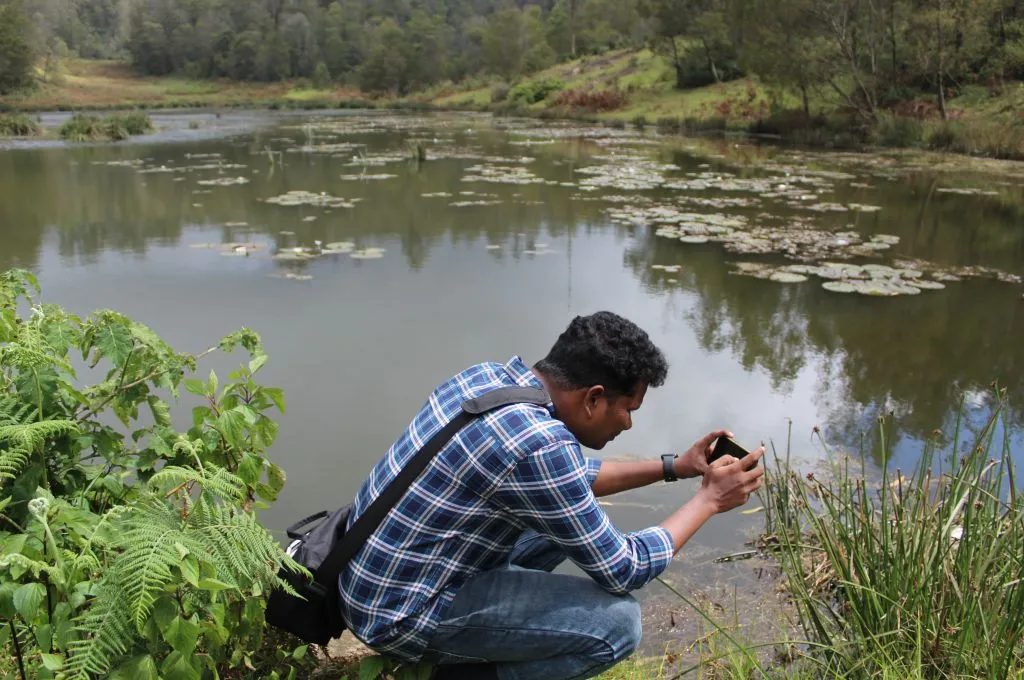More than a decade ago, around the time our daughter was born, my wife, Archana, and I asked ourselves a life-changing question: ‘How much is enough?’ We soon came to the conclusion that we needed a finite amount of money to live the life we desired. So, we decided that if we could somewhat cap the lifestyle we wanted, we could start focusing more vigorously on social sector pursuits.
Know how much is enough.
Defining how much was enough allowed us to pursue more interesting and meaningful things: it helped us contribute to building a university, a super-specialty paediatric hospital and a school for Musahar children, besides working in drought-affected areas.
We could also invest our resources and time in setting up capacity building programmes for the social sector, promoting philanthropic platforms and helping build movements like the Joy of Giving Week and Design for Change.
None of this would have even crossed our imagination when we started, largely because we felt limited by artificial mental constraints on how much to give in terms of time and money.
It’s a journey.
Early on in my life, I didn’t have much money, so I gave my time. Then, as a young and busy professional, I started donating money. I soon realised that I enjoyed knowing that my skills were useful to organisations I was interested in. So, I gradually started giving both time and money.
Over time, Archana and I decided to undertake a more structured programme to allocate money to causes that we were passionate about. With the benefit of hindsight, we know we made a lot of mistakes; we continue to make some even today. But it’s been a journey to us becoming more thoughtful donors today—a journey that others can embark on too.
Take baby steps.
I believe that the biggest enemy of any change is inertia. One needs to start experiencing something, in however small a manner, to make progress. When it comes to the social sector, potential givers always overthink, waiting for the elusive perfect moment. Their expectations of nonprofits are that of a perfect life partner, which, to me, is strange.
Many of the people I know are business persons who understand investing. They are willing to invest in an imperfect stock, knowing that it’s the only way to ultimately make money. Then why not invest in an imperfect nonprofit?
[quote]In business, people are willing to invest in an imperfect stock. Then why not invest in an imperfect nonprofit?[/quote]
With imperfect stocks, you start by investing a small amount, see how it performs and once you are comfortable, you enhance your allocation over time. Why isn’t this logic applied to nonprofits?
As with any form of consumption, one usually starts with trying something out and experiencing what that feels like. Then, if one likes it, one is willing to try more of it. But these rules somehow don’t seem to apply when it comes to us thinking about participating in the social sector.
To relate a recent example, I met with a CEO of a mid-sized nonprofit who told me that an individual she knew very well was hesitant to give her money because she didn’t have a perfect succession plan. Ironically, this well-wisher happens to be a rather sophisticated hedge fund manager and I can bet that nine out of the 10 companies he has invested in don’t have robust succession plans.
The standards are therefore very different–and they shouldn’t be.
Accept that everything will not work.
People must approach the social sector with the same intelligence they use in other facets of life. Like everything in life, they have to be realistic that every experience will not be great. The key is to take the plunge, stick to whatever works and discard what doesn’t.
[quote]The key is to take the plunge, stick to whatever works and discard what doesn’t.[/quote]
People should work harder to understand the social sector because its organisations and its people are solving a much bigger problem than many companies are attempting to solve.
In the world of business, there are thousands of people solving one corporate problem: there are six major telecom companies solving your communications problem, there are eight large auto companies solving your mobility problem.
But how many people are trying to solve issues such as sexual abuse of the girl child, water sustainability, or developing an urban plan to make Mumbai more liveable?
These are issues that impact all of us in our lives today and tomorrow. In fact, their impact is far more powerful than what companies do. If one of the auto companies goes bankrupt, another will take its place. But if civil society fails, what hope do we have for our country?

Photo courtesy: Charlotte Anderson Photography
Unfortunately, most of us have desensitised ourselves to our surroundings and we have all become ‘comfortably numb’, as Pink Floyd put it. We are lulling ourselves into a sense of complacency.
Then there is this huge sense of misplaced pride that we as a culture are big givers. But if you look at the data, it simply doesn’t support this. I spend a lot of time in rural India and I know, at least anecdotally, that they are bigger givers than urban India, and that our poor are bigger givers than our wealthy.
[quote]There is huge misplaced pride that we as a culture are big givers. But the data doesn’t support this.[/quote] When you look at the history of our philanthropy and the extraordinary donations made by families like Tata, Godrej and Bajaj in the early part of the 20th century, I feel we might have been greater givers when we were a poor nation. As India becomes wealthier, we must introspect if we have become stingier with our wealth.
Celebrate giving.
I fear that we Indians are beginning to celebrate consumption and display far more than we did earlier. In a country with so much inequity, this needs to change. For that to happen, we need society to celebrate giving.
Our country needs more role models–wealth creators like Azim Premji, Kiran Mazumdar Shaw, Rohini and Nandan Nilekani, Narayana Murthy and Ashish Dhawan.
The growth of philanthropy should reach a tipping point where it becomes a major national movement. And movements get from being nascent to real when they gather critical mass, when something magical happens and people look at it and say “this is the way we want to be”. My hope is that this happens before we have a cataclysmic event in our society.
[quote]The onus is on philanthropists themselves to create that critical mass.[/quote]
My hope is that India reaches a point where we have so many compassionate capitalists that it becomes difficult to not emulate them.
People should be able to look at role models and want to give more: someone giving two percent of their wealth should want to give 10 percent, while someone at 10 percent should want to give 30 percent because Mr Premji is giving 50 per cent. And that should become the race. I hope it’s a race that philanthropists willingly get into instead of being mandated. It should always be a pull instead of a push.
There are people shining the light, encouraging others. Chuck Feeney and others showed the light for Bill Gates, who showed the light for Warren Buffet. Gates and Buffet created the Giving Pledge and dozens of others have followed them, making it a movement.
I hope that it happens in India and that we get to a stage where if you are an Indian billionaire who is not a signatory to the Giving Pledge, you are an exception.
So, what can you do?
Each person should be connected to society and everyone must do something.
Not everyone is as rich as Bill Gates or Azim Premji. I have heard people say that we will start giving just as generously once we get to their level, but the fact is that there is no end to wanting to create more and more wealth.
[quote]Start by setting a personal minimum bar for giving—10 percent of your annual income is a good place to start.[/quote]
If we want to build the India of our dreams, we simply cannot afford to be disconnected from society’s problems as most of us are today. So, start by setting a personal minimum bar for giving. I would say 10 percent of your annual income is a good place to start.
Everyone should define their own capacity to give, but by setting a very high threshold for income before you start giving, you are missing out on a great opportunity to serve society and experience the joy of giving.
Don’t give zero percent of your time and money now with the hope that you will get to ‘being a Gates or a Premji’ at some point of your life.
If you are not able to give much monetarily, choose other ways to be engaged. Giving time is as valuable and many organisations need volunteers. It doesn’t even need to be an organisation—it can be unstructured volunteering to help someone in your neighbourhood.
Ideally, choose an area you are passionate about and find people who inspire you.
Most people have something they care about, either because of some deep personal experience or the way we are wired as human beings. Other times, it is about inspirational people who might draw you to a cause or an organisation.
It is also important to enjoy the journey of giving in terms of the people you interact with at the organisation you support. Therefore, as you deepen your engagement with the sector, think hard about some of the people and organisational choices you make.
When we give, we really get a lot more.
While giving is an imperative in a society with massive inequity, it is also a huge opportunity for personal growth and for experiencing a kind of joy that is very different from what consumption offers.
In conclusion, I would like quote my favourite poet Rumi, “Yesterday I was clever, I wanted to change the world. Today I am wise, I want to change myself.”






